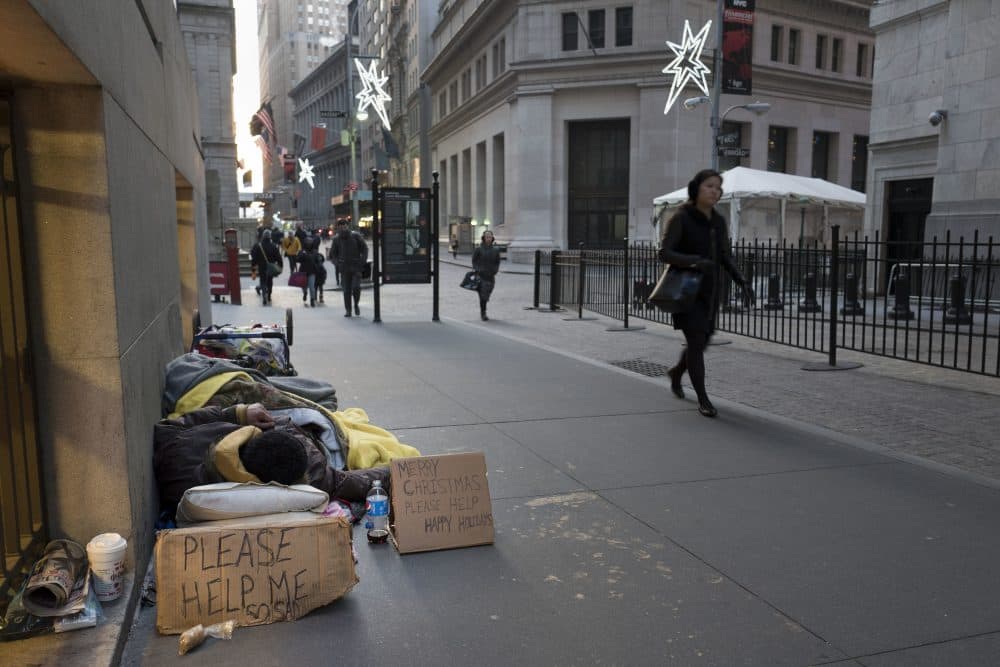Advertisement
Could Handing Out Money End Poverty?

COMMENTARY
Finland is the latest country in the news for test-driving an elegantly simple anti-poverty plan. Starting in 2017, it will hand out money to 2,000 randomly selected Finns who are out of work.
The government will spend two years studying whether recipients use the windfall for breathing room — to job-hunt, start a business, or go back to school — or whether they will, in the words of one news report, “stop working and squander their money on vodka.” They won't lose any aid if they earn extra cash on their own.
The Finnish plan tweaks the idea of a universal basic income, a notion as old as Tom Paine, under which every citizen gets a regular cash grant from the government. (“The world’s simplest plan to end poverty,” one writer called it.) Swiss voters recently rejected a universal income, which, of course, the Finnish project isn’t; it targets aid on just those in need. France, Canada and the Netherlands have similar tests in the works.
The argument for cash grants is that they’d be less scattershot and administratively cheaper than our welfare state, and potentially more effective at reducing poverty.
These countries are onto something. Donald Trump, whose own thoughts about the downtrodden tend toward the harebrained, should pay attention to the overseas experiments.
I’ve argued that a truly universal handout is a bad idea for the United States. It wouldn’t eliminate the need to spend on other social needs, from public works jobs to college access to health care to healthier food production and distribution. And it’s unaffordable; giving everyone $10,000 annually would cost $3 trillion-plus per year, equal to almost every penny Uncle Sam currently collects in taxes. Moreover, it would pay many Americans who didn’t need the help, thank you.
But what if we just gave $10,000 to each of the 50 million Americans who are poor, at a cost of $500 billion? Yes, that’s still a staggering sum. Yet redirecting the $225.5 billion we now spend on the half dozen major anti-poverty programs would get us almost halfway there. (I’m not including Medicaid and Obamacare subsidies, since we need to spend more on health care, but a living income for the poor could make parts of those programs redundant, too.)
There’s plenty of low-hanging fruit we could pluck to come up with the rest of a guaranteed income, from closing tax loopholes to cutting military waste and eliminating programs like Head Start, the $9 billion layout of which achieves only modest outcomes.
We shouldn’t limit our imagination when tapping existing spending for a guaranteed income, as we may want to go beyond $10,000 per person. (One study pegged the median per person welfare package under the existing system, including federal and state aid, at almost $29,000 per year.) Before upending the safety net, though, we’d need a pilot program like Finland's. The current system is efficient and effective, conventional grousing notwithstanding. The argument for cash grants is that they’d be less scattershot and administratively cheaper than our welfare state, and potentially more effective at reducing poverty. But they raise legitimate concerns that I believe can and should be answered by a pilot test.
Some worry that handing people money would rot their incentive to work, or that recipients might fritter away their grants. As to the first concern, we and Canada ran local experiments with cash grants in the 1970s; erosion of working hours was scant. Nor have I heard of a wobbly work ethic in Alaska, which since 1976 has used oil revenue to give a considerable (though not enough to live on) annual payment to each resident.
Fears that poor people would blow money on booze, cigarettes or other non-essentials ignore two words: Bolsa Familia.
Its administrative simplicity makes [Bolsa Familia's] cost a fire sale as public assistance goes, yet by 2014, it had cut Brazil’s poverty rate by two-thirds.
The path-breaking Brazilian program (its name means Family Grant) gives up to $2,400 a year, per person, to 55 million impoverished citizens. When it began in 2003, elite opinion derided the idea on the grounds that “the poor didn’t know how to allocate resources correctly,” as a Brazilian economist told one author. That writer found that, on the contrary, research shows “that, when given the chance, destitute families generally didn’t squander their money,” especially when it’s given to mothers rather than fathers, as Bolsa Familia does.
Its administrative simplicity makes the program’s cost a fire sale as public assistance goes, yet by 2014, it had cut Brazil’s poverty rate by two-thirds. It imposes obligations on recipients, such as getting their children immunizations and checkups. Some advocates endorse cash to the poor because of poverty’s debilitating health effects; Bolsa Familia suggests the approach can work.
Tying payments to responsible behavior, plus Bolsa Familia’s frugal cost, persuaded non-poor Brazilians to support the program, suggesting selling points to anti-spending types in Congress who can be counted on to balk at a U.S. version. Many fiscal conservatives regard cash payments as a way to scrimp on spending for the poor — the biggest mistake we could make. Some years back, House Speaker Paul Ryan proposed combining federal welfare programs into checks for the needy, but as block grants, which states would be able to slash.
The right should remember: One of its heroes, the late Nobel economist Milton Friedman, advocated a generous guaranteed income. If his spirit doesn't inform this war on poverty, we'll be shooting blanks.
